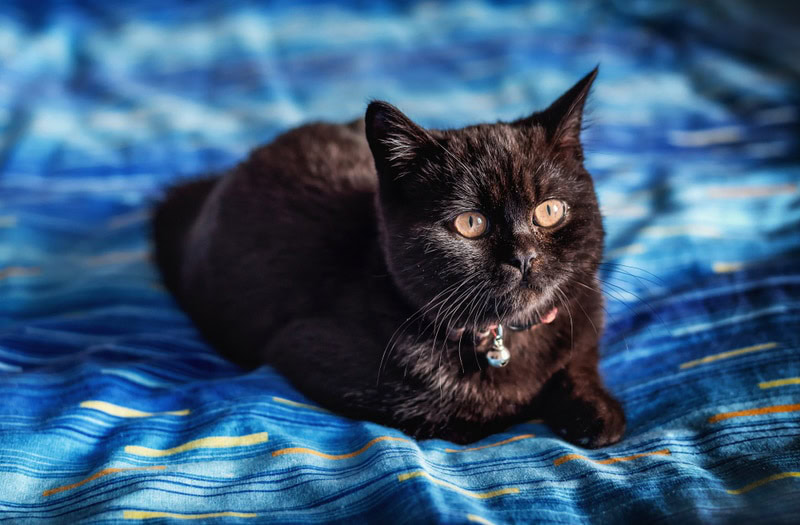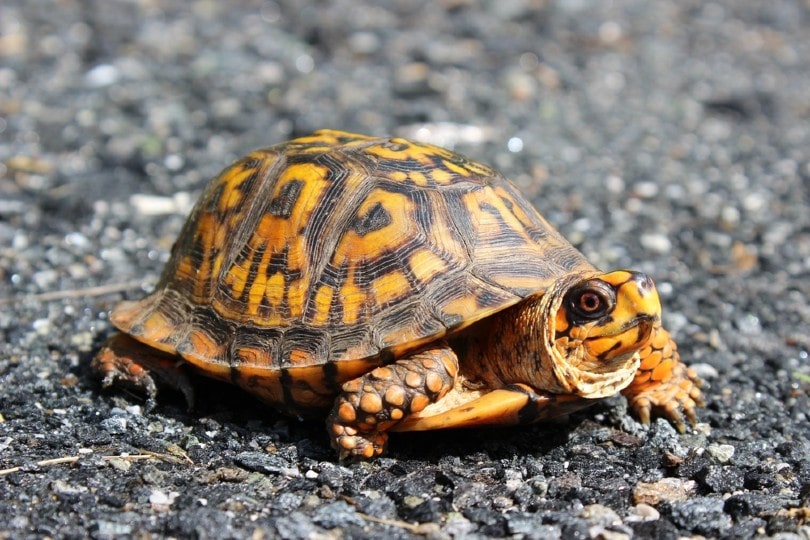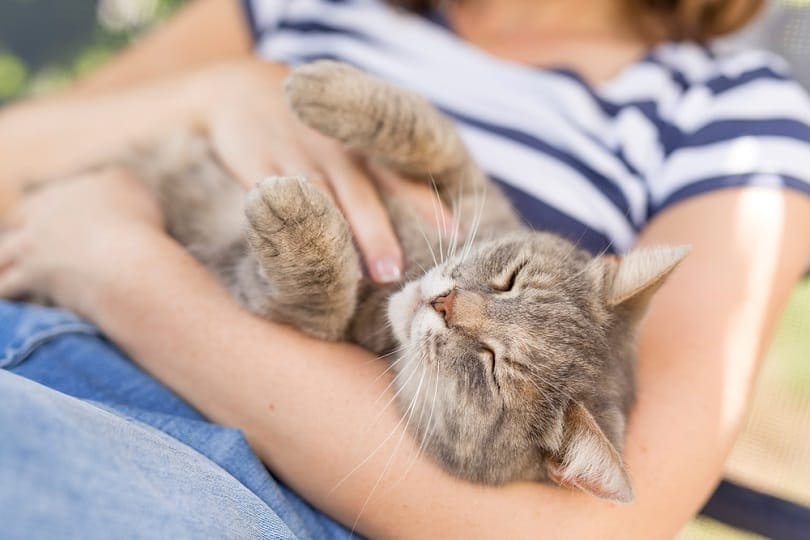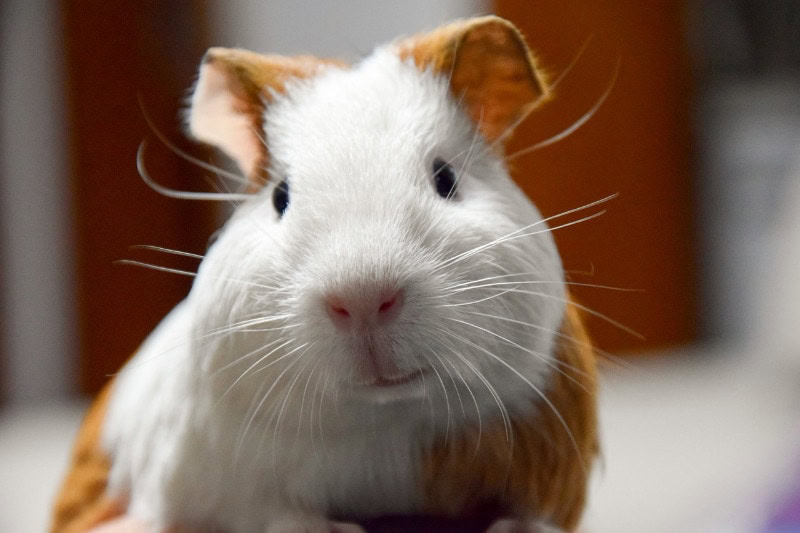The British Shorthair is a compact, muscular cat that is popular for their laid-back, loving temperament. Most people are more familiar with blue British Shorthairs, but these lovely cats come in several colors. One of the colors of British Shorthair that you may not have spotted is black. Is black a breed standard color for these kitties? Fortunately, it is!

Can British Shorthairs Be Black?
Yes, black is an accepted color in the British Shorthair breed standard. Although uncommon, it’s not the rarest coat color. The rarest color in British Shorthairs is fawn, and if you want to adopt a fawn British Shorthair, you’ll pay much more than you would for other coat colors.
All British Shorthair cats have eyes that fall on the orange or copper spectrum, except white cats, which may have blue eyes. The paw pads and noses of black British Shorthair cats are also black, but their eyes are orange.
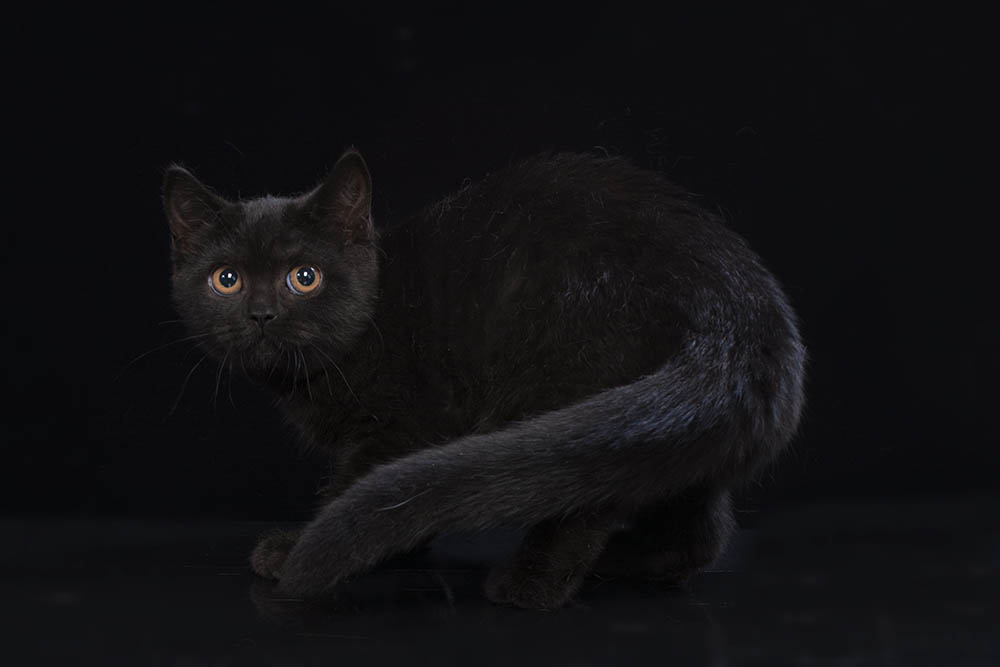
British Shorthair cats can also have patterned coats, including bicolor, tricolor, harlequin, tortoiseshell, tabby, smoke, shaded chinchilla, and tipped chinchilla. Tabby can be further broken down into ticked, dotted, blotched, tattered, or mackerel.
Smoke, shaded chinchilla, and tipped chinchilla can all have black fur at the end of the hair shaft, but the hair shafts closest to the body are silvery-white. Smoke accounts for around half of the shaft, while both chinchilla patterns only have darker pigment on the top 1/8th of the shaft.
The Black Hair Gene
Believe it or not, blue British Shorthair cats are actually blue because of the same gene that causes black hair. Blue cats have an additional gene that dilutes color, and the blue color is a faded, smoky black. These genes also impact the color of the paw pads and muzzle, which are also blue or faded black.
Interestingly, black British Shorthair cats often don’t stay black their entire lives. Typically, they are born black and will remain so for at least the first year or so of life. As they age, the coat may begin to fade to a deep chocolate brown.
It’s not uncommon for black cats to fade or “rust” as they age, especially if they spend a lot of time in direct sunlight, but British Shorthairs will turn brown all over, not just in bright lighting.
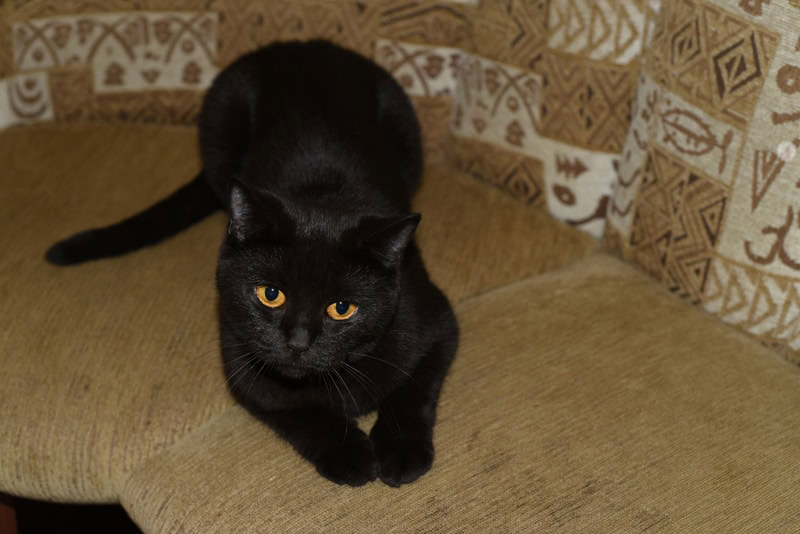

Conclusion
Black British Shorthairs are part of the breed standard, but black is an uncommon coat color. It may be challenging to find a black British Shorthair in your area, and you may have to search in another state. Some black British Shorthairs’ coats will fade as they age, turning a beautiful chocolate brown color. Others may slightly rust as they age and spend time in the sun, but this color change will only be noticeable in bright lighting.
Blue British Shorthairs have the same gene that causes the black coat color, but they contain a secondary dilution gene that fades their black coat down to a smoky blue.
Featured Image Credit: sduraku, Shutterstock
